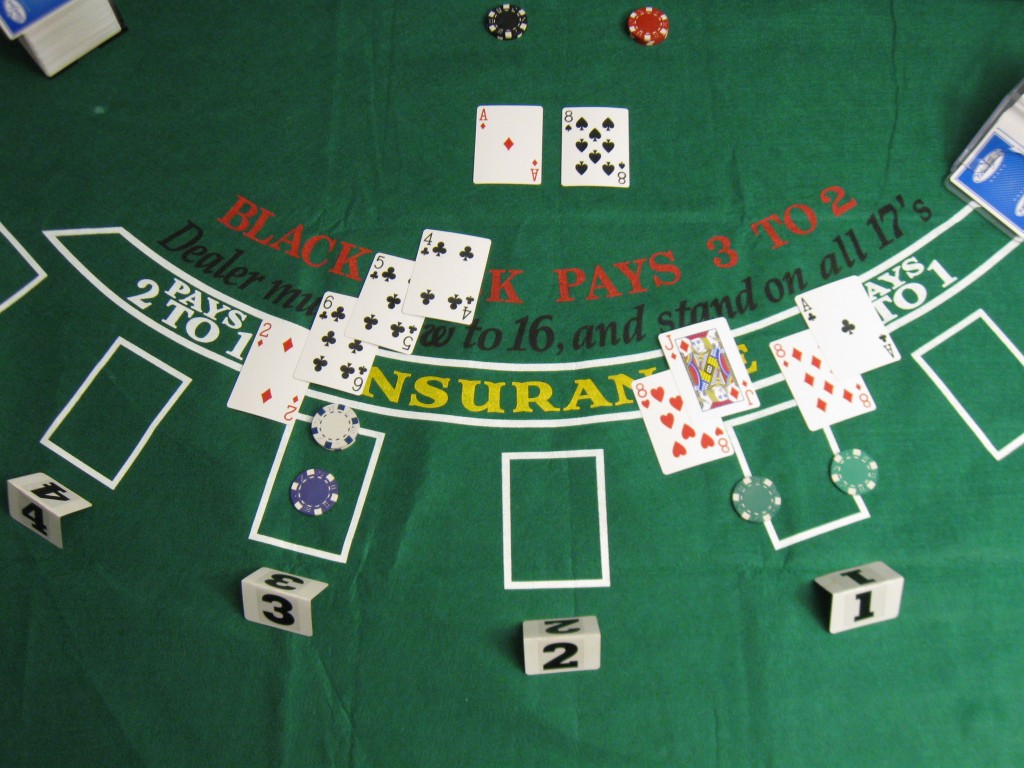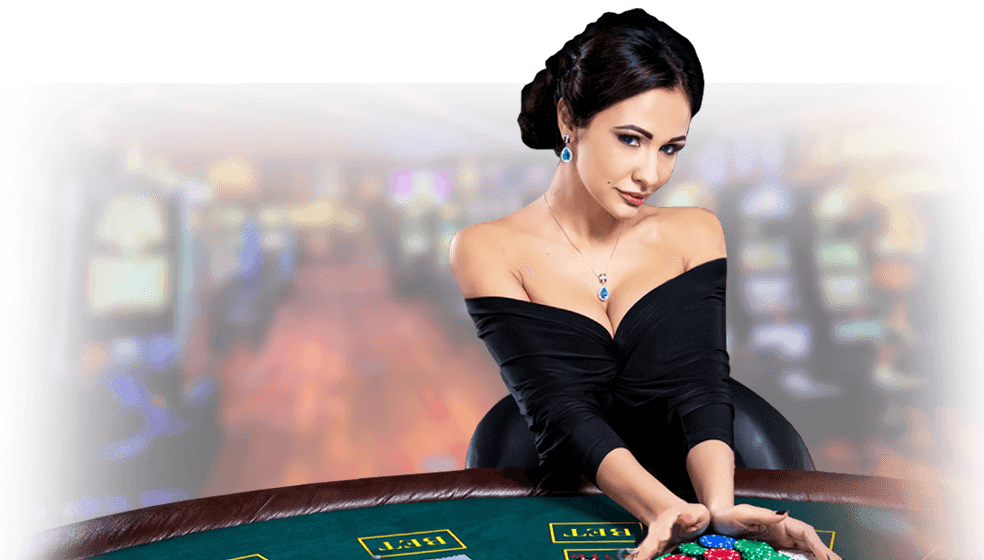Working as a casino dealer, or croupier, requires an understanding of the various table games along with excellent customer service skills. No formal training is required, although some community colleges offer relevant coursework in partnership with local casinos and resorts.
Playing a basic strategy in blackjack requires no card counting, although it does require some memorization. A basic strategy involves:
- looking at the cards you hold
- looking at the dealer's face-up card
- determining the odds that either you or the dealer will bust
Before we get into the details of a basic strategy, it's important that we know the odds. Blackjack, like all casino games, is set up so that the house has an advantage. If you were to play exactly like the dealer (stand on 17 or higher, hit on 16 or less), it stands to reason that there would be no house advantage. Both you and the dealer would win an equal number of times. However, the dealer plays after the players, which means that when you and the dealer both bust, you still lose. Taking into account the payout bonus for getting a blackjack, it works out to roughly a 5.5 percent house advantage. That means that if you were to play blackjack for a very long time (eight hours a day for several years), you would end up losing about 5.5 percent of your money.

Advertisement
So how does a basic strategy work? Entire books have been devoted to the subject, but all basic strategies revolve around the fact that there are more cards worth 10 in the deck than any other value -- 16 out of 52 cards are worth 10.
Casino Dealer School Near Me
Knowing this, a basic-strategy player assumes that the dealer's second card will be worth 10, even though many times it isn't. Based on the dealer's 'up card' (the card the players know the value of), the dealer's hand can be placed into two categories:
- hands that are likely to bust the dealer
- hands that are likely to give the dealer a good hand

If the dealer is showing a Two, Three, Four, Five, or Six, he is more likely to bust. The Five and the Six are the cards most likely to lead to a busted hand for the dealer. In this case, the player doesn't have to take big risks to try to get closer to 21 -- he simply needs to avoid busting himself.
If the dealer is showing a Seven or anything higher, there is a significant chance he will make a good hand of 18, 19, 20, or 21. If the player has a hand with a lower value than 18, he might want to be more aggressive and take another card, risking a bust to try to get a better hand.
So, getting more specific, here are four easy rules on when to hit and when to stand:
- If your hand is 11 or less, always hit. You can't possibly bust, so the extra card will only help your hand.
- If your hand is 17 or greater, and the dealer is not showing a Seven or higher, always stand. The risk of busting if you hit is very high.
- If your hand is 12 to 16, and the dealer is showing an up card likely to bust (see illustration above), always stand. Although this is a weak hand, it will still win if the dealer busts. Exception - If the dealer has a Two or a Three showing, hit if you have 12.
- If your hand is 12 to 16, and the dealer has a Seven or higher showing, always hit. The dealer is far more likely to get a better hand than yours unless you can improve it. There's a risk of busting, but in this case you have to take that risk.
Exception: If you're holding a soft Ace, you can be more aggressive than these rules indicate. You might even hit on a 17, depending on what the dealer is holding.
Although basic blackjack strategies can get infinitely more complex, those four rules are the core of most of the strategies in use today.
If you're wondering what card counting is, and if you're even allowed to do it, we'll explain it all in the next section.
A blackjack dealer is an individual who works in a casino and who deals the cards for blackjack. Blackjack is a table game in which players aim to reach as close to 21 as possible without going over. The object for players is to either have a higher number than the dealer and/or for the dealer to go over 21 so the players will win their hands.
Generally, blackjack is played in locations where gambling is legal. This occurs within the United States in Atlantic City, New Jersey, Las Vegas Nevada, and on Indian reservations. Some casinos are also on riverboats off-shore. Other countries also have various rules on the legality of gambling; in Monte Carlo for example, gambling is legal as well as in some parts of Canada and in certain clubs and areas in England. Many cruise ships and Caribbean islands also offer blackjack play.
What Is Casino Dealer Means Name
A blackjack dealer may work in any of these environments in which gambling is legal and in which people come to play table games. A dealer generally must be licensed or authorized to deal blackjack. This is usually done by a gaming commission or some other related body, or by the casino who hires him. The certification usually requires a background check in which the dealer is fingerprinted and it is determined whether the dealer has any criminal convictions that would preclude him from being trustworthy as a blackjack dealer.
Comments are closed.